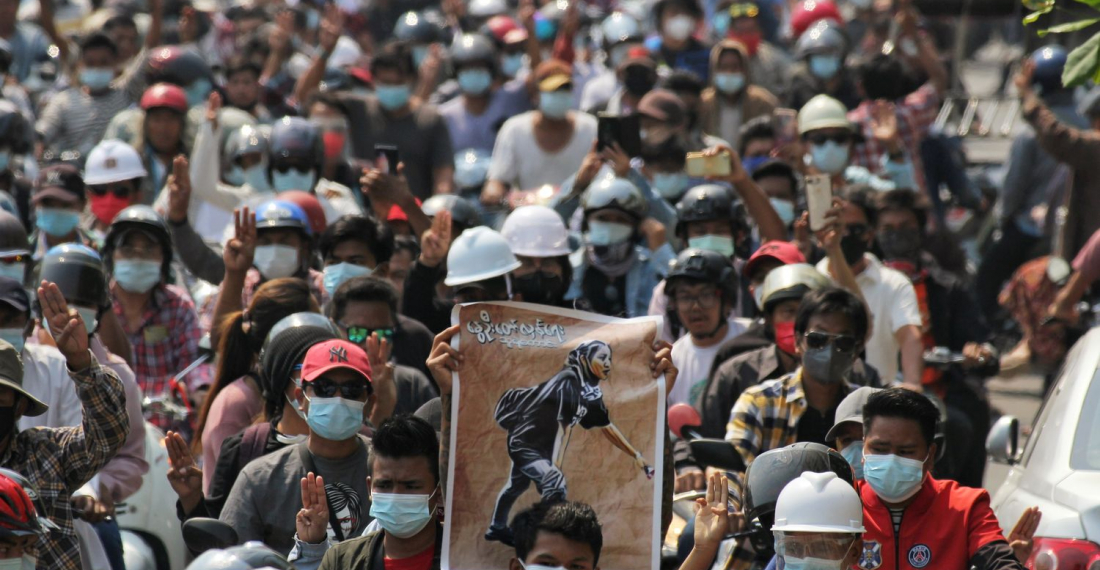The European Union (EU) today (4 March) suspended financial aid to development projects in Myanmar. According to EU officials, Brussels wants to avoid providing financial assistance to the military, led by Commander-in-Chief of Defence Services Min Aung Hlaing, who took over the leadership of the Asian country in a coup d'état last month.
Earlier today, the President of the European Council, Charles Michel, tweeted:
Stop the cycle of violence against peaceful protesters in #Myanmar
— Charles Michel (@eucopresident) March 4, 2021
Democratic process must be restored.
Killing of innocent civilians can and will not go unpunished. #EU is preparing measures against those responsible.
The EU has informed a World Trade Organisation committee (WTO) that all development aid to Myanmar will be suspended. According to Reuters news agency, more than two hundred million euros has been spent on various EU programmes in the Asian country in recent years. The financial aid was intended, among other things, for education and ensuring the proper conduct of elections. According to the military leadership, the elections, which were won by the party of government leader Aung San Suu Kyi, were illegitimate.
EU foreign ministers agreed last month to look into sanctions that could target businesses owned by the army, but ruled out any curtailing of trade preferences for Myanmar to avoid hurting the poorest workers in textiles.
The military coup in Myanmar, in which Aung San Suu Kyi's government was overthrown, has been widely condemned by the international community. The United States, among other nations, previously announced sanctions, including the freezing of USD 1 billion of Myanmar government assets in the US.







